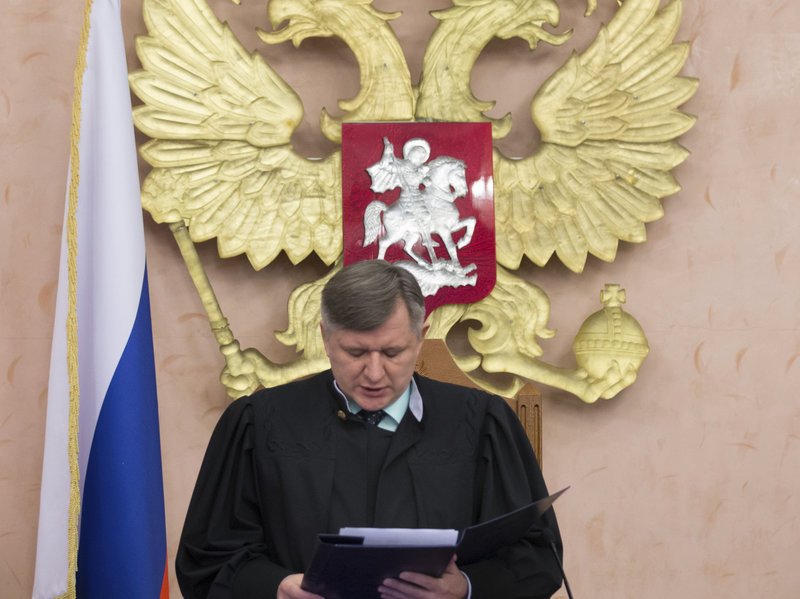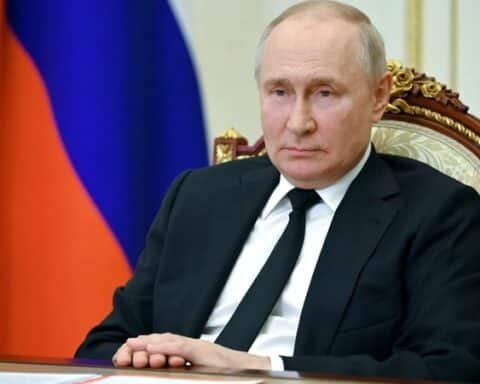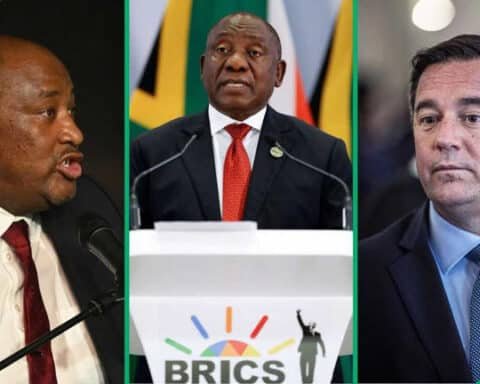Russia’s Supreme Court on Thursday declared Jehovah’s Witnesses, a Christian denomination that rejects violence, an extremist organization, banning the group from operating on Russian territory and putting its more than 170,000 Russian worshipers in the same category as Islamic State militants.
 The ruling, which confirmed an order last month by the Justice Ministry that the denomination be “liquidated” — essentially eliminated or disbanded — had been widely expected. Russian courts rarely challenge government decisions, no matter what the evidence.
The ruling, which confirmed an order last month by the Justice Ministry that the denomination be “liquidated” — essentially eliminated or disbanded — had been widely expected. Russian courts rarely challenge government decisions, no matter what the evidence.
Viktor Zhenkov, a lawyer for the denomination, said Jehovah’s Witnesses would appeal the ruling. He said it had focused on the activities of the organization’s so-called administrative center, a complex of offices outside St. Petersburg, but also branded all of its nearly 400 regional branches as extremist.
“We consider this decision an act of political repression that is impermissible in contemporary Russia,” Mr. Zhenkov said in a telephone interview. “We will, of course, appeal.”
An initial appeal will be made to the Supreme Court’s appellate division, Mr. Zhenkov said, and if that fails, Jehovah’s Witnesses will take the case to the European Court of Human Rights, in Strasbourg, France.
Hard-line followers of Russia’s dominant faith, the Orthodox Church, have lobbied for years to have Jehovah’s Witnesses outlawed or at least curbed as a heretical sect, but the main impetus for the current campaign to crush a Christian group active in Russia for more than a century seems to have come from the country’s increasingly assertive security apparatus.
Founded in the United States in the 19th century, Jehovah’s Witnesses has its worldwide headquarters in the United States and, along with all foreign-led groups outside the control of the state, is viewed with deep suspicion by Russia’s post-Soviet version of the KGB: the Federal Security Service, or F.S.B.
The Interpreter Newsletter
Summing up the Justice Ministry’s case against the denomination, the ministry’s representative, Svetlana Borisova, told the Supreme Court on Thursday that Jehovah’s Witnesses had shown “signs of extremist activity that represent a threat to the rights of citizens, social order and the security of society.”
During six days of hearings over two weeks, lawyers and witnesses for the religious group repeatedly dismissed the extremist allegation as absurd, arguing that reading the Bible and promoting its nonviolent message could in no way be construed as extremist.
Human Rights Watch, in a statement issued in Moscow, condemned the court ruling as “a serious breach of Russia’s obligations to respect and protect religious freedom.”
Rachel Denber, the human rights group’s deputy director for Europe and Central Asia, said the decision delivered “a terrible blow to freedom of religion and association in Russia.”
Jehovah’s Witnesses shuns political activity and has no record of even peaceful — never mind violent — hostility to the Russian authorities. But it has faced growing hostility from the state since President Vladimir V. Putin of Russia began his third term in 2012 and put the Orthodox Church at the center of his push to assert Russia as a great military and moral power.
The denomination suffered relentless persecution by the KGB during the Soviet era, and after more than a decade of relative peace following the collapse of Communism in 1991, it again became a target for official harassment under a 2002 anti-extremism law. That law makes it illegal for any group, other than the Orthodox Church and other traditional religious institutions, to proclaim itself as offering a true path to religious or political salvation.








